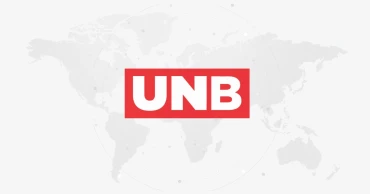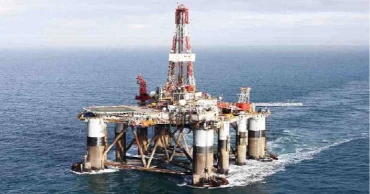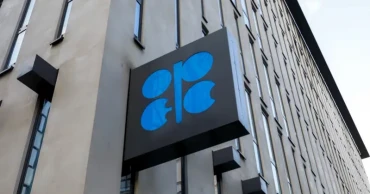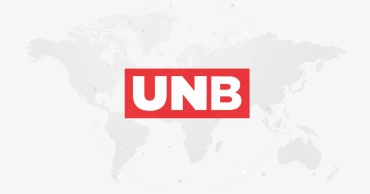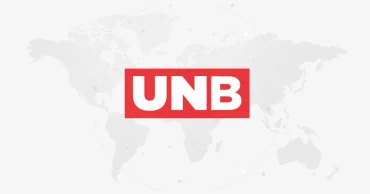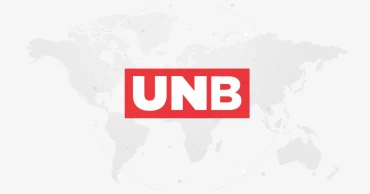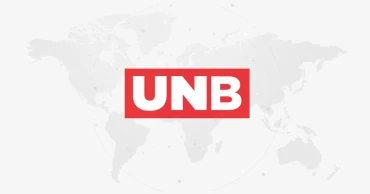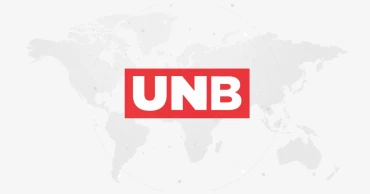Oil
Karwan Bazar traders announce Ramadan price cuts on lemon, oil, sugar, meat
Traders at the capital’s Karwan Bazar on Monday announced price reductions on several essential commodities, including lemon, edible oil, sugar and beef, aiming to ease consumers’ burden as the holy month of Ramadan is underway.
The announcement came at a press conference organised by Islamia Shanti Samiti at the kitchen market of Karwan Bazar.
Business leaders said they have decided to lower prices by reducing their profit margins in consideration of consumers during the holy month of Ramadan.
According to the traders, the price of lemon will be reduced by Tk 2 per piece, edible oil by Tk 1 per litre, sugar by Tk 1 per kg, gram (chhola) by Tk 2 per kg, Tang (200g packet) by Tk 5, beef by Tk 30 per kg and Miniket rice by Tk 1 per kg.
Lemon traders said lemons are sold in different categories depending on quality and source. Premium-quality lemons are currently sold at up to Tk 17 per piece, while lower-grade ones sell for as low as Tk 3. Prices of all categories will be reduced by Tk 2 per piece, they added.
Edible oil traders said they will cut Tk 1 per litre. A five-litre bottle, previously sold at Tk 920, will now be available at Tk 915.
Traders also said packaged sugar, which has a printed price of Tk 105 per kg and was being sold at Tk 102, will now be sold at Tk 101 per kg. The price of gram has been reduced from Tk 85 to Tk 83 per kg.
Beef traders announced a Tk 30 reduction per kg, bringing the price down to Tk 750. Miniket rice will also be sold at Tk 1 less per kg, they said.
Among others, Saiful Islam Milon, MP from Dhaka-12 constituency, and business leaders of Karwan Bazar were present at the press conference.
9 days ago
Businesses raise edible oil prices without government approval: Commerce Adviser
Commerce Adviser Sk Bashir Uddin on Tuesday said businesses have increased edible oil prices without the government’s approval, which is beyond their authority.
Bottled edible oil price goes up by Tk 6 per litre
“The government has not raised edible oil prices, nor has it given any permission to businesses to do so. Businesses do not have the authority to increase prices without the ministry’s approval. If there are price discrepancies, the government will take necessary measures,” he said while speaking at an event in Purbachal on the recent hikes in soybean and palm oil prices.
Bashir Uddin said edible oil is a regulated product under the Ministry of Commerce and only the ministry has the authority to fix its prices. “The Tariff Commission determines edible oil prices based on a 14-year-old formula. Personally, I do not find this formula reasonable,” the adviser said.
He said the ministry has tasked two financial bodies — the Institute of Cost and Management Accountants of Bangladesh (ICMAB) and the Institute of Chartered Accountants of Bangladesh (ICAB) — with reviewing edible oil prices in line with global market trends.
“On Monday, ICMAB submitted a draft report to the ministry. ICAB has not yet submitted any report. In this interim period, traders suddenly announced a price hike, which is completely illegal,” Bashir Uddin said.
Edible oil prices to go up in Bangladesh
He stated that the ministry will soon adjust edible oil prices after analyzing the reports from both institutes.
On Monday, the Bangladesh Vegetable Oil Refiners and Vanaspati Manufacturers Association claimed that the new prices were set in consultation with the Ministry of Commerce and aligned with international market rates.
Bashir Uddin, however, clarified that no such approval was granted by the ministry.
According to the new rates set by businesses, bottled soybean oil has increased by Tk 6 per litre to Tk 195, while loose soybean oil went up by Tk 8 per litre to Tk 177.
Besides, a 5-litre bottle of soybean oil now costs Tk 945 after a Tk 23 hike, and loose palm oil has been raised from Tk 13 per litre to Tk 163.
4 months ago
55 companies invited in global bid for Bangladesh offshore exploration; Energy Advisor optimistic
Prime Minister’s Energy Advisor Dr Tawfiq-e-Elahi Chowdhury has said that the international bidding for offshore oil and gas exploration will draw a huge response.
“This round, we have introduced some new aspects like linking gas price with Brent and per year cost recovery at highest 75 percent to make the bidding more attractive,” he told reporters at a press conference at Petrobangla headquarters in Dhaka on Monday.
The Energy and Mineral Resources Division organised the press conference to brief about the “Oil and Natural Gas Exploration Under Bangladesh Offshore Bidding Round 2024”, for which Petrobangla invited international oil and gas companies (IOCs).
Intensify efforts to scale up renewable energy technology: Energy Advisor
State Minister for Power, Energy and Mineral Resources Nasrul Hamid, Energy Secretary Md Nurul Alam and Petrobangla chairman Zanendra Nath Sarker also addressed the event.
The tender notice was published in local newspapers and websites of concerned government entities including Bangladeshi missions abroad on Sunday giving six months’ time until September 9, 2024 for submission of the bids.
As per the floated tender, a total of 24 offshore blocks — of which nine are shallow blocks — and 15 deep sea blocks are available for the bidding round.
The nine shallow sea blocks are SS-01, 02, 03, 05, 06, 07, 08, 10 and 11) and 15 deep sea blocks are DS-08, 09, 10, 11, 12, 13, 14, 15, 16, 17, 18, 19, 20, 21 and 22.
Gov wants AIIB to invest more in energy, power sectors: Nasrul
The bidder, singly or in association with other companies, can bid for one or more blocks.
Contracts will be signed with the successful bidders in line with the Bangladesh Offshore Model Production Sharing Contract 2023, said the tender.
Tawfiq Elahi Chowdhury informed that so far, the bidding invitation was sent to 55 IOCs who have contacted the government as potential bidders.
He, however, averted a question on the geopolitics that might appear to be a factor in the participation of the IOCs in the bidding round.
Nasrul Hamid said it’s an open bidding and any company eligible can bid for any block. He said a pre-bid meeting will be arranged after Ramadan for the interested bidders.
Read more: Petrobangla invites offshore bidding for oil, gas exploration
1 year ago
Petrobangla invites offshore bidding for oil, gas exploration
Petrobangla, the oil, gas and mineral corporation, has floated the offshore bidding, inviting international oil and gas companies to explore in the Bangladesh maritime area in the Bay of Bengal
The tender, named “Oil and Natural Gas Exploration Under Bangladesh Offshore Bidding Round 2024”, was published in local newspapers and websites of concerned government entities including Bangladeshi missions abroad on Sunday giving six months time until September 9, 2024 for submission of the bids.
As per the floated tender, a total of 24 offshore blocks — of which nine are shallow blocks — and 15 deep sea blocks are available for the bidding round.
The nine shallow sea blocks are SS-01, 02, 03, 05, 06, 07, 08, 10 and 11) and 15 deep sea blocks are DS-08, 09, 10, 11, 12, 13, 14, 15, 16, 17, 18, 19, 20, 21 and 22.
The bidder, singly or in association with other companies, can bid for one or more blocks.
Contracts will be signed with the successful bidders in line with the Bangladesh Offshore Model Production Sharing Contract 2023, said the tender.
Read more Cabinet body approves draft contract to invite int’l bidding for offshore gas exploration
The features of the proposed contract include full repatriation of profit, no signature bonus or royalty, uncapped attractive gas price linked with international marker, oil price to be determined on the basis of the fair market value prevailing in South and Southeast Asia.
It entails no duty for equipment and machinery imported for petroleum operations while contractor's corporate income tax liability will be borne by Petrobangla, and bank guarantee for performance of the minimum exploration program.
There will be provision for assignment of interest and share-transfer and 100 percent cost recovery with a yearly cap of 75 percent.
The contractor must have a mandatory work program consisting of 2D seismic
survey and mandatory purchase of available
2D multi-client seismic data against bidded blocks to get relief from mandatory work obligations proportionately.
They will have minimum work obligation in each of the exploration periods while biddable work program commitment over and above the mandatory program.
There will be petroleum profit sharing on the basis of R-factor with biddable upper and lower limits and option to sell contractor's share of natural gas in the domestic market to a third party, at a negotiated price, subject to Petrobangla's right of first refusal.
Read more: New PSC: Petrobangla awaits final nods to invite int’l bidding for offshore blocks
The bidder must ensure carried stake of 10 percent for state-owned Bangladesh Petroleum Exploration and Production Company Limited (BAPEX) for both shallow and deep sea blocks.
The bidders’ qualification criteria include — individual or in case of joint venture at least one member — offshore daily production of at least 15,000 barrel of oil or 150 mmsc of gas. Bidders must have at least one global experience (other than home country) in the oil and gas exploration and production.
The Information Package will be available at a cost of US$ 300 or equivalent Bangladeshi taka to the interested bidders/companies.
To enable companies to assess the geological prospects of the blocks on offer, Promotional and Data Packages are available on payment basis. Promotional Packages contain Bidding Document, sample seismic sections, gravity, magnetic, geological maps. Companies are required to purchase the Promotional Package in order to qualify for bidding, said the tender.
The purchase price of the Promotional Package is US$ 10,000 or equivalent Bangladeshi taka. Purchase of Data Sales Package is optional. Several Data Sales Packages are available at different prices.
Companies interested in bidding and purchase of Promotional and Data Sales Packages may contact the Director, Production Sharing Contract, Bangladesh Oil, Gas & Mineral Corporation (Petrobangla) Petrocentre, 3 Karan Bazar, Dhaka-1215, said the bidding tender.
Read more: Action against officials of Petrobangla companies if fail to achieve target: Nasrul
1 year ago
With oil prices slumping, OPEC+ producers weigh more production cuts
The major oil-producing countries led by Saudi Arabia and Russia are wrestling with whether to make another cut in supply to the global economy as the OPEC+ alliance struggles to prop up sagging oil prices that have been a boon to U.S. drivers and helped ease inflation worldwide.
The 23-member group is meeting Sunday at OPEC headquarters in Vienna after sending mixed signals about possible moves. Saudi Arabia, dominant among the oil cartel's members, has warned speculators that they might get burned by betting on lower prices. Russia, the leader of the non-OPEC allies, has indicated no change to output is expected.
The decision comes amid uncertainty about when the slow-growing global economy will regain its thirst for fuel for travel and industry, and with producers counting on oil profits to bolster their coffers.
Oil prices have fallen even after OPEC+ slashed 2 million barrels per day in October, angering U.S. President Joe Biden by threatening higher gasoline prices a month before the midterm elections. Then, several OPEC members led by the Saudis made a surprise cut of 1.16 million barrels a day in April.
International benchmark Brent crude climbed as high as $87 per barrel but has given up its post-cut gains and been loitering below $75 per barrel in recent days. U.S. crude has dipped below $70.
Those lower prices have helped U.S. drivers as the summer travel season kicks off, with prices at the pump averaging $3.55, down $1.02 from a year ago, according to auto club AAA. Falling energy prices also helped inflation in the 20 European countries that use the euro drop to the lowest level since before Russia invaded Ukraine.
The U.S. recently replenished its Strategic Petroleum Reserve — after Biden announced the largest release from the national reserve in American history last year — in an indicator that U.S. officials may be less worried about OPEC cuts than in months past.
The Saudis, on the other hand, need sustained high oil revenue to fund ambitious development projects aimed at diversifying the country's economy. The International Monetary Fund estimates the kingdom needs $80.90 per barrel to meet its envisioned spending commitments, which include a planned $500 billion futuristic desert city project called Neom.
That may have been one motivation behind Energy Minister Abdulaziz bin Salman's warning to speculators that they will be "ouching" if they keep betting on lower oil prices.
Bin Salman's pointed comment isn't necessarily a prelude to a cut at Sunday's meeting, said James Swanston, Middle East and North Africa economist at Capital Economics.
"Our expectation is that OPEC+ will stick with current output quotas," he said, adding that "there have been signs that the government may be readying to live with lower oil prices and running budget deficits."
On top of that, Russia may find current prices to its liking because its oil is finding eager new customers in India, China and Turkey. Western sanctions over the war in Ukraine have forced Russian oil to sell at discounts of around $53 to $57 per barrel.
At those prices, Moscow's shipments avoid triggering the $60 price cap imposed by the Group of Seven major democracies to try to limit oil profits flowing into Russia's war chest. The price ceiling allows the world's No. 3 oil producer to keep supplying non-Western customers to avoid a global shortage that would drive up prices for everyone.
Insurers and shipping companies largely based in Western countries are barred from handling Russian oil if it is priced above the cap. Russia has found ways to evade the limits through "dark fleet" tankers, which tamper with transponders showing their locations or transfer oil from ship to ship to disguise its origin.
An OPEC+ "production cut could push the price of Russian oil above the G7 price cap of $60 per barrel, which would make it difficult to transport and thus to sell the oil," commodity analyst Carsten Fritsch at Commerzbank wrote in a research note. "Russia appears to be doing good business at the current price level."
The International Energy Agency said in its April oil market report that Russia has not completely followed through on its announcement to extend a voluntary cut of 500,000 barrels per day through the end of the year.
In fact, Russia's total exports of oil and refined products such as diesel fuel rose in April to a post-invasion high of 8.3 million barrels per day. That is in spite of a near-total boycott from the European Union, formerly Russia's biggest customer.
Analysts say OPEC+ faces conflicting pressures. A cut could support prices or send them higher, with demand expected to pick up later this year.
"The impact of higher oil prices on the global economy will weigh heavily on the ministers' minds," said Jorge Leon, senior vice president of oil market research at Rystad Energy. "High oil prices would fuel inflation in the West right when central banks are starting to see inflation gradually recede."
"This could prompt central banks to continue increasing interest rates, a detrimental move for the global economy and oil demand," Leon wrote in a research note.
2 years ago
BMTF to supply 3 crore blank smart cards to EC
Bangladesh Army-run Bangladesh Machine Tools Factory Limited (BMTF) will supply 3 crore blank smart cards to Bangladesh Election Commission (EC).
Cabinet Committee on Government Purchase (CCGP) in a meeting on Tuesday approved the proposal along with some others from different ministries.
Finance Minister AHM Mustafa Kamal presided over the virtual meeting.
As per the proposal, the BMTF will supply the smart cards under the Identification System for Enhancing Access to Services (2nd Phase) project of the Arms Forces Division of the Prime Minister's Office at contract value of Tk 406.50 crore.
Under other proposals, approved by the CCGP, state marketing agency Trading Corporation of Bangladesh (TCB) will import 12,500 metric tons (MT) of sugar and 1.10 crore litres of soybean oil for its ongoing programme to sell those in open market.
Each kg of sugar will cost Tk 82.92 while the soybean oil will cost Tk 146.10 per litre
Of these, Smart Matrix Pte., Ltd., Singapore (Local Agent: Mark Line Enterprise, Dhaka) will supply 12,500 MT of sugar at Tk 66.79 crore while the Guven Traders Ptv. Ltd., India (Local Agent: HH Enterprise, Dhaka) will supply 1.10 crore of soybean oil at Tk 148.30 crore.
Supplier Smart Matrix Pte., Ltd., Singapore was selected for sugar supply through an international bidding process while the Guven Traders Ptv. Ltd., India, was chosen by the TCB through direct procurement method without any bidding process.
The Cabinet body approved a number of proposals of the Roads and Highway Department (RHD) under the Roads Transport and Highway Division to award contracts for road constructions.
Of these, the Joint Venture of (1) SRBG, China; and (2) and BTC, Bangladesh won a contract of the Lot No- DS-7 under Package No- WP-04 of the Project "Sasec Dhaka-Sylhet Corridor Road Development" at Tk 947.74 crore.
The Joint Venture of (1) CSCEC7, China; and (2) Spectra Engineers Ltd., Bangladesh won the contract of the Lot No. DS-8 under Package No- WP-04 of the project “Sasec Dhaka-Sylhet Corridor Road Development” at Tk.1, 178.68 crore.
The RHD selected Taher Brothers Ltd. to award the contract for “Upgradation of Gouripur-Anandganj-Madhupur-Dewanganj Bazar-Hosenpur District Highway to the proper standard” at a value of Tk 131. 47 crore.
The RHD selected Joint Venture of (1) Mozahar Enterprise Pvt. Ltd., (2) National Development Engineers Ltd., and (3) Sagar Info Builders Ltd. for Package No. PW-01 of "Sherpur (Kanasakhola)-Bhimganj-Narayankhola-Rambhadrapur-Mymensingh (Rahmatpur) Road Development '' Project at Tk 149.99 crore.
The Joint Venture of (1) National Development Engineers Ltd. , and (2) Hasan Techno Builders Ltd., has been selected by the RHD for the package No. PW-02 of the "Sherpur (Kanasakhola)-Bhimganj-Narayankhola-Rambhadrapur-Mymensingh (Rahmatpur) Road Development" at a contract value of Tk 180 crore.
Meanwhile, the Cabinet Committee on Economic Affairs at a meeting approved in principle a proposal of the Directorate General of Health Services to procure Firstline TB Drugs, Medical and Surgical Supplies and Laboratory Equipment from the Essential Drugs Company Limited through Direct Purchase Method (DPM) without bidding process.
The drugs, services and equipment will be procured for the "Health and Gender Support in Cox's Bazar District (2nd Revised)"project under the United Nations Office for Project Services.
2 years ago
Saudis, other oil giants announce surprise production cuts; prices could go up
Saudi Arabia and other major oil producers on Sunday announced surprise cuts totaling up to 1.15 million barrels per day from May until the end of the year, a move that could raise prices worldwide.
Higher oil prices would help fill Russian President Vladimir Putin's coffers as his country wages war on Ukraine and force Americans and others to pay even more at the pump amid worldwide inflation.
It was also likely to further strain ties with the United States, which has called on Saudi Arabia and other allies to increase production as it tries to bring prices down and squeeze Russia's finances.
The production cuts alone could push U.S. gasoline prices up by roughly 26 cents per gallon, in addition to the usual increase that comes when refineries change the gasoline blend during the summer driving season, said Kevin Book, managing director of Clearview Energy Partners LLC. The Energy Department calculates the seasonal increase at an average of 32 cents per gallon, Book said.
So with an average U.S. price now at roughly $3.50 per gallon of regular, according to AAA, that could mean gasoline over $4 per gallon during the summer.
However, Book said there are a number of complex variables in oil and gas prices. The size of each country's production cut depends on the baseline production number it is using, so the cut might not be 1.15 million. It also could take much of the year for the cuts to take effect. Demand could fall if the U.S. enters a recession caused by the banking crisis. But it also could increase during the summer as more people travel.
Even though the production cut is only about 1% of the roughly 100 million barrels of oil the world uses per day, the impact on prices could be big, Book said.
Also Read: As Biden weighs Willow, he blocks other Alaska oil drilling
“It's a big deal because of the way oil prices work,” he said. “You are in a market that is relatively balanced. You take a small amount away, depending on what demand does, you could have a very significant price response.”
Saudi Arabia announced the biggest cut among OPEC members at 500,000 barrels per day. The cuts are in addition to a reduction announced last October that infuriated the Biden administration.
The Saudi Energy Ministry described the move as a “precautionary measure” aimed at stabilizing the oil market. The cuts represent less than 5% of Saudi Arabia's average production of 11.5 million barrels per day in 2022.
Also Read: Oil giant Saudi Aramco has profits of $161B in 2022
Iraq said it would reduce production by 211,000 barrels per day, the United Arab Emirates by 144,000, Kuwait by 128,000, Kazakhstan by 78,000, Algeria by 48,000 and Oman by 40,000. The announcements were carried by each country's state media.
Russia’s Deputy Prime Minister Alexander Novak meanwhile said Moscow would extend a voluntary cut of 500,000 until the end of the year, according to remarks carried by the state news agency Tass. Russia had announced the unilateral reduction in February after Western countries imposed price caps.
All are members of the so-called OPEC+ group of oil exporting countries, which includes the original Organization of the Petroleum Exporting Countries as well as Russia and other major producers. There was no immediate statement from OPEC itself.
The cuts announced in October — of some 2 million barrels a day — had come on the eve of U.S. midterm elections in which soaring prices were a major issue. President Joe Biden vowed at the time that there would be “consequences” and Democratic lawmakers called for freezing cooperation with the Saudis.
Both the U.S. and Saudi Arabia denied any political motives in the dispute.
Since those cuts, oil prices have trended down. Brent crude, a global benchmark, was trading around $80 a barrel at the end of last week, down from around $95 in early October, when the earlier cuts were agreed.
Analysts Giacomo Romeo and Lloyd Byrne at Jefferies said in a research note that the new cuts should allow for “material” reductions to OPEC inventory earlier than expected and could validate recent warnings from some traders and analysts that demand for oil is weakening.
Kristian Coates Ulrichsen, a Gulf expert at Rice University's Baker Institute for Public Policy, said the Saudis are determined to keep oil prices high enough to fund ambitious mega-projects linked to Crown Prince Mohammed bin Salman's Vision 2030 plan to overhaul the economy.
“This domestic interest takes precedence in Saudi decision-making over relationships with international partners and is likely to remain a point of friction in U.S.-Saudi relations for the foreseeable future,” he said.
Saudi Arabia's state-run oil giant Aramco recently announced record profits of $161 billion from last year. Profits rose 46.5% when compared to the company’s 2021 results of $110 billion. Aramco said it hoped to boost production to 13 million barrels a day by 2027.
The decades-long U.S.-Saudi alliance has come under growing strain in recent years following the 2018 killing of Saudi dissident Jamal Khashoggi, a U.S.-based journalist, and Saudi Arabia's war with the Iran-backed Houthi rebels in Yemen.
As a candidate for president, Biden had vowed to make Saudi Arabia a “pariah” over the Khashoggi killing, but as oil prices rose after his inauguration he backed off. He visited the kingdom last July in a bid to patch up relations, drawing criticism for sharing a fistbump with Crown Prince Mohammed.
Saudi Arabia has denied siding with Russia in the Ukraine war, even as it has cultivated closer ties with both Moscow and Beijing in recent years. Last week, Aramco announced billions of dollars of investment in China's downstream petrochemicals industry.
2 years ago
Govt planning to invite int’l bidding for offshore blocks with more attractive PSC
The government of Bangladesh is preparing to invite international bidding for the country's offshore gas blocks by making the model production sharing contract (Model PSC) more attractive for international oil companies (IOCs) to invest in hydrocarbon exploration in the Bay.
“We’re going to offer the price of gas at 10 percent of Brent Crude,” a top official of Petrobangla, the state hydrocarbons agency, told UNB, referring to the most traded of all of the oil benchmarks.
The official, preferring anonymity to discuss the sensitive issue, said if Brent oil is traded at $75 per barrel, the gas price would be $7.5 per thousand cubic feet (MCF). The gas price will always remain linked with the international oil price, he said, referring to the new provision of the 'Model PSC 2023'.
Also read: Petrobangla to amend Model PSC further to attract IOCs in offshore gas exploration
But there will be no difference between the price of gas in shallow and deep water blocks, he said.
“If the oil price goes down or up, the gas price will follow it rationally and Bangladesh will purchase the explored gas from the IOCs at this rate,” said the official.
Under a Model PSC, normally, if any IOC discovers gas, it gets a 40 percent stake while the government obtains the remaining 60 percent.
The government also buys the IOC's gas at a certain price. So if the gas price is raised, IOCs feel encouraged to invest in exploration works.
Read More: Govt expedites gas exploration activities to increase primary fuel supply: Nasrul Hamid
The government had last amended the Model PSC in mid-2019, whereby the price of gas for any participating IOC, that is, the price at which they would sell the gas to the government, was raised to $5.5 per MCF for shallow water blocks, and $7.25 per MCF for gas extracted from its deep sea blocks.
The source also informed that the new proposal has been prepared as per the recommendations of a Scottish consultancy firm, Wood Mackenzie, which was appointed last year to work out the new plan for Petrobangla to attract the international bidding for IOCs.
Talking to reporters, Petrobangla chairman Zanendra Nath Sarker recently said the organisation has recently forwarded its proposal with the Scottish consultancy firm Wood Mackenzie’s recommendation to the Energy and Mineral Resources Division of the Ministry of Power, Energy and Mineral Resources seeking its approval for the plan.
Read More: Amid nationwide gas shortages, new exploration work continues in Sylhet
The ministry will now seek the approval of the Prime Minister’ Office for Petrobangla's plan.
“Once we receive the nod of the PMO and the ministry, we would place a proposal to the Cabinet Economic Affairs Committee for the final approval,” he added.
Another senior official of Petrobangla also said that as soon as the Cabinet body approves the proposal, the organisation will invite international bidding within two months. “In this case, we hope we can go for bidding within July or August next,” he told UNB preferring anonymity.
He said previously many IOCs were reluctant to participate in the bidding of the exploration due to the price offered by Bangladesh.
Read More: Accelerate gas exploration to overcome energy crisis: ICCB
“Now we hope it will be a lucrative offer for the IOCs to invest in the offshore areas of Bangladesh for gas exploration,” he added.
Petrobangla appointed Wood Mackenzie last year to help amend the Model PSC 2019, to attract international oil companies amid the volatile international fuel market.
Official sources said the recent excessive hike in petroleum fuel price, especially that of liquefied natural gas (LNG), has prompted the government to go for further amending the existing PSC so that the IOCs get interested to invest here.
The country has a total of 48 blocks of which 26 are located offshore and 22 onshore. Of the 26 offshore blocks, 11 are located in shallow sea (SS) water while 15 are located in deep sea (DS) water areas.
Read More: Russian Embassy refutes TIB statement on Dhaka-Moscow grain deals, gas exploration
Of these, 24 offshore gas blocks remain open for IOCs while two blocks -SS-04 and SS-09-are under contract with a joint venture of ONGC Videsh Ltd and Oil India Ltd where drilling works have recently started.
There was a target to invite international bidding in March 2020 for exploration in offshore areas, but that got postponed due to the Coronavirus pandemic that emerged at exactly the same time.
"The recent upward trend in oil and gas price has pushed the policymakers to further raise the gas price by introducing much more flexibility and incentives including keeping the export option open in the PSC," said another Petrobangla official.
He mentioned that the government had to import LNG at $36 per MMBtu while it was just below $10 early last year.
Read More: Gas Fields in Bangladesh: Exploration of 2 more wells expected to begin this year
The latest Russian invasion of Ukraine has further deepened the global market volatility pushing up the petroleum fuel price over $100 per barrel, the highest in the last 7 years.
Now again the oil and gas prices are on a downward trend and Brent crude oil is traded at $75 per barrel while LNG price is at below $14 per MMBtu.
Bangladesh's offshore area remains unexplored despite the settlement of its dispute with neighbouring Myanmar and India over the maritime boundary almost nine years ago.
Currently, about 2300 mmcfd gas is being produced from 22 gas fields in the country, while about 700 mmcfd gas is being imported from abroad to meet the demand of about 4000 mmcfd, leaving a deficit of about 1000 mmcfd.
Read More: US companies encouraged for oil, gas exploration in Bangladesh's offshore
2 years ago
Corruption, deep disparity mark Iraq’s oil legacy post-2003
The oil is pumped 24 hours a day several meters from Raghed Jasim’s home in Iraq’s crude-rich southern heartland. Gas flares from the field light the night sky bright orange, spewing acrid smoke; when the wind picks up, the 40-year old’s clothes are coated black.
For Iraq’s poorest, evidence of the country's monumental oil wealth is inescapable. So is the knowledge that very little of it trickles down to them.
Jasim’s savings were depleted when he was diagnosed with cancer last year, a disease he is convinced was caused by the toxic plumes. Twenty years since the U.S.-led invasion toppled Saddam Hussein and remade Iraq’s political order with the promise of democracy and freedom, he has one wish: To find a way to leave.
“There is no future here for my children,” he said.
Basra province, which boasts most of Iraq’s oil reserves, is symbolic of the deep disparities that have endured since the 2003 invasion. Basra continually bewilders experts, envoys and residents: How can a relatively stable province so rich in resources rank among the poorest and most under-developed in the country?
“Of course, I blame the corrupt Iraqi government,” said Jasim, a policeman, echoing a widespread view in the region. “But I blame the Americans too. They replaced our leaders with thieves.”
Local leaders in Basra talk of the oil reserves as both a blessing and a curse. They say resources bring affluence but have also given rise to vicious competition between political elites and armed groups at the expense of the Iraqi people.
The power-sharing system in place since 2003, which divides the state and its institutions along ethnic and sectarian lines, sucks oil wealth into a pool of corruption and patronage. The higher the oil price, the more entrenched this system becomes as sectarian-based parties claim lucrative ministry portfolios, appoint loyalists in key positions and dole out public jobs to ensure support. According to the International Monetary Fund, public sector employment tripled from 2004 to 2013, but service delivery in health, education and power sectors remained inadequate.
The result is that elections keep establishment parties in power. Voter turnout has dropped to record lows.
Apart from institutional failures, air pollution is extensive in Basra, and salinity levels arising from a severe fresh water crisis are leading causes of illness, according to local researchers. Unemployment is rampant, with more than half the population below the age of 25.
Public anger gave rise to violent protests in 2018, the precursor to mass anti-government protests in the capital a year later. But a swift crackdown by security forces and assassinations by armed groups have created a climate of fear.
“The killings silenced many activists,” said Basra activist Ammar Sarhan. “Business continues as usual.”
The 2003 toppling of Saddam propelled the oil-rich country into the global economy, opening the doors to foreign investment. In pre-invasion planning, U.S. advisors and their Iraqi opposition allies in exile had envisioned a shock system of reforms that would revamp Iraq’s oil industry and fund post-war reconstruction.
Instead, violence hobbled oil production for years. A charm offensive by then-Oil Minister Hussein al-Shahrestani paved the way for major oil contracts to be awarded in 2007 and 2009. Today exports reach over 3 million barrels a day, double the rate in the early 2000s. The state budget, which in 2021 reached up to $90 billion, is financed almost entirely by oil revenues. Still, the government fails to deliver essential services, including water and electricity.
In Basra, conditions rank amongst the worst in the country. Unemployment stands at 21%, above the national average of 16% according to a 2022 study by the International Labor Organization. Statistics for poverty rates vary from 10-20% according to various studies and local economists. Meanwhile, the province boasts around 70% of the country's oil production capacity.
The road leading to Jasim’s humble home is rocky and unpaved.
In 2003, he was a young man bewitched by the Bush administration’s rhetoric of building a democratic Iraq, he said. “We were full of hope,” he recalled. Twenty years on, he is middle-aged, tired of rampant government corruption and recovering from cancer.
The loan he had taken out to build a home was used up to pay for $30,000 in private medical bills. Basra’s decrepit public hospitals were overwhelmed and unable to provide treatment, he said.
His is a common story in Nahran Omar, a village of fewer than 2,000 people adjacent to a state-run oil field where cancer rates are disproportionately high. Every family here has a story of illness and debt, said Bashir Jabir, the mayor.
“After 2003, more and more oil was exported, and we expected to benefit from this,” he said. “Instead, it hurt us.”
The government long played down the link between cancer rates in the south and oil production activity, saying cases are only marginally higher than the rest of the country. This changed in 2022, when then-Environment Minister Jassim al-Falahi acknowledged that pollution from the fields was the main reason for the rise in sickness.
Nahran Omar highlights a tragic irony: The natural gas burned from the oil fields, if captured, could solve Iraq’s perennial electricity shortages and reduce pollution. But securing investment to do this has been set back by protracted contract negotiations, a common headache for most major foreign investors.
The entry of foreign investors also exacerbated competition between tribes, said Sheikh Muhammed al-Zaidawi, who leads an assembly of southern tribal elders. Tribes, which often wield more influence than government institutions in the south, pressure foreign companies for jobs, compensation, training for youth and development of their villages.
“Most of the problems between tribes today are caused by the presence of oil companies,” he said, “All of them want to benefit.” Tribal disputes often turn into deadly gun battles.
Reliance on the oil industry has stifled private sector development. Nearly every prime minister since the invasion has repeated calls to diversify the economy and boost incentives for Iraqi businesses.
Nidhal Musa is one success story.
She grew up in a poor suburb of Basra city and was 35 when the U.S. invaded Iraq. She spent subsequent years taking care of her sick and disabled husband. Desperate to earn money, she began sewing clothes to sell in the local market.
By 2013, she had gathered a group of women just like herself, beleaguered and in need of money to support their families. She pooled together enough funds to open a garment factory and became known for employing the poor.
But not everyone welcomed her success.
In 2022, Musa received a slew of death threats. “Be very careful,” one message read. She believes she is being targeted because she refused to use her local fame to back a powerful political party that asked her to promote their campaign in 2021 elections.
“They try to keep us weak,” she said. “They know perfectly well, if the people are hungry, they will be preoccupied only by their hunger.”
2 years ago
As Biden weighs Willow, he blocks other Alaska oil drilling
As President Joe Biden prepares a final decision on the huge Willow oil project in Alaska, his administration announced he will prevent or limit oil drilling in 16 million acres in Alaska and the Arctic Ocean.
Plans announced Sunday night will bar drilling in nearly 3 million acres of the Beaufort Sea — closing it off from oil exploration — and limit drilling in more than 13 million acres in a vast swath of land known as the National Petroleum Reserve - Alaska.
The moves come as regulators prepare to announce a final decision on t he $8 billion Willow project, a controversial oil drilling plan pushed by ConocoPhillips in the petroleum reserve. Climate activists have rallied against project, calling it a “carbon bomb” that would be a betrayal of Biden's campaign pledges to curb new oil and gas drilling.
Also Read: Oil giant Saudi Aramco has profits of $161B in 2022
Meanwhile, Alaska lawmakers, unions and indigenous communities have pressured Biden to approve the project, saying it would bring much-needed jobs and billions of dollars in taxes and mitigation funds to the vast, snow- and ice-covered region nearly 600 miles (965 kilometers) from Anchorage. Sen. Dan Sullivan, R-Alaska, called Willow “one of the biggest, most important resource development projects in our state’s history.”
Biden’s decision on Willow will be one of his most consequential climate decisions and comes as he gears up for a likely reelection bid in 2024. A decision to approve Willow risks alienating young voters who have urged stronger climate action by the White House and flooded social media with demands to stop the Willow project. Approval also could spark protests similar to those against the failed Keystone XL oil pipeline during the Obama administration.
Rejection of the project would meet strong resistance from Alaska’s bipartisan congressional delegation, which met with top officials at the White House in recent days to lobby for the project. Republican Sen. Lisa Murkowski, who provided key support to confirm Interior Secretary Deb Haaland, said it was no secret she has cooperated with the White House on a range of issues.
“Cooperation goes both ways,″ she told reporters.
Haaland, who fought the Willow project as a member of Congress, has the final decision on whether to approve it, although top White House climate officials are likely to be involved, with input from Biden himself. The White House said no final decision on Willow has been reached.
Under the conservation plan announced Sunday, Biden will bar drilling in nearly 3 million acres of the Arctic Ocean, and impose new protections in the petroleum reserve.
The withdrawal of the offshore area ensures that important habitat for whales, seals, polar bears and other wildlife "will be protected in perpetuity from extractive development,'' the White House said in a statement.
The action completes protections for the entire Beaufort Sea Planning Area, building upon President Barack Obama’s 2016 withdrawal of the Chukchi Sea Planning Area and the majority of the Beaufort Sea, the White House said.
Separately, the administration moved to protect more than 13 million acres within the petroleum reserve, a 23-million acre chunk of land on Alaska’s North Slope set aside a century ago for future oil production.
The proposed Willow project is within the reserve, and ConocoPhillips has long held leases for the site. About half the reserve is off limits to oil and gas leasing under an Obama-era rule reinstated by the Biden administration last year.
Areas to be protected include the Teshekpuk Lake, Utukok Uplands, Colville River, Kasegaluk Lagoon and Peard Bay Special Areas, collectively known for their globally significant habitat for grizzly and polar bears, caribou and hundreds of thousands of migratory birds.
Abigail Dillen, president of the environmental group Earthjustice, welcomed the new conservation plan, but said if the Biden administration believes it has authority to limit oil development in the petroleum reserve, officials should extend those protections to the Willow site.
"They have the authority to block Willow,'' she said in an interview Sunday.
Athan Manuel, director of the Sierra Club's lands protection program, said the benefits of the new protections would be more than undone by damage from Willow, which would be the biggest new oil field in decades in Alaska, producing up to 180,000 barrels per day, according to ConocoPhillips.
“No proposal poses a bigger threat to lands, wildlife, communities and our climate than ConocoPhillips’ Willow project,'' Manuel said in a statement. "Oil and gas leasing on public lands and waters must end — full stop. The eyes of the world are watching to see whether this administration will live up to its climate promises.''
In 2015, President Barack Obama halted exploration in coastal areas of the Beaufort and Chukchi seas, and he later withdrew most other potential Arctic Ocean lease areas — about 98 percent of the Arctic outer continental shelf. The bans were intended to protect polar bears, walruses, ice seals and Alaska Native villages that depend on the animals.
President Donald Trump reversed Obama's decision, but a federal judge restored the Obama-era restrictions in 2019, ruling that Trump exceeded his authority.
The Biden administration received one bid in December for the right to drill offshore for oil and gas in Alaska’s Cook Inlet.
2 years ago


